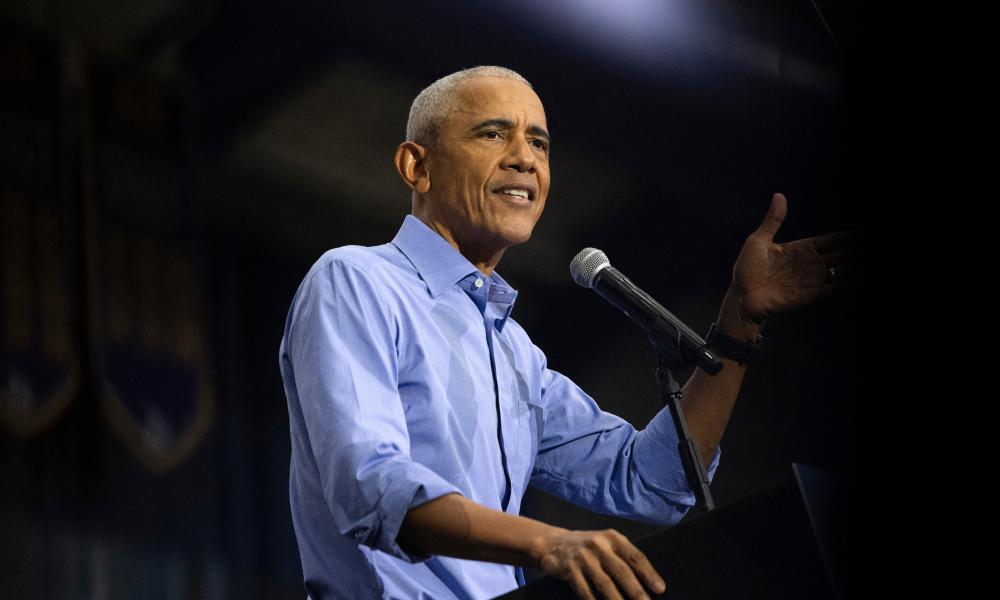On Thursday, Barack Obama made a significant appearance on the campaign trail for Kamala Harris in Pennsylvania, where he spoke directly to the importance of galvanizing support for the vice-president, particularly among Black men. At a rally in one of Harris’s campaign offices, Obama highlighted a concerning statistic from a September NAACP poll indicating that over one quarter of Black men under 50 were inclined to vote for Donald Trump. He addressed these voters’ hesitancy and urged them to reconsider their support. “We have not yet seen the same kinds of energy and turnout in all quarters of our neighborhoods and communities as we saw when I was running,” Obama noted, emphasizing the need for unity and action within the Black community to support a female presidential candidate.
During his address, Obama urged men, particularly Black men, to challenge the excuses they have for not supporting Harris. He speculated that some of the reluctance might stem from discomfort with the idea of having a woman in the presidency. He pointed out the importance of their involvement, stating, “When we get in trouble and the system isn’t working for us, they’re the ones out there marching and protesting.” This direct appeal underscored his desire to cultivate enthusiasm for Harris’s candidacy and to foster a broader understanding of why their vote is crucial in shaping the democratic landscape.
The former president’s rallying cry for Harris was centered on a need for a leader who genuinely prioritizes problem-solving and advocacy for marginalized communities. In a separate event at the Fitzgerald Field House in Pittsburgh, where he drew a large crowd, Obama stressed the importance of voting not just for Harris but also for down-ballot candidates like Pennsylvania Senator Bob Casey. He touted Harris’s sincere commitment to making life better for citizens, emphasizing the necessity of a “Senate full of serious public servants like Bob Casey” to support her efforts.
Obama’s remarks also acknowledged the frustrations many Americans are feeling due to inflation and the slow recovery from COVID-19, positioning Harris’s candidacy as a solution to these problems. He reminded the audience of the misguided notion that Trump could bring positive change, condemning the perception that his brash behavior exemplified strength. Instead, Obama championed the true definition of strength as being empathetic and supportive, qualities he associated with Harris’s leadership.
The rally also featured Pennsylvania Governor Josh Shapiro, who praised the Democratic party’s initiatives within the state, particularly those aimed at expanding universal free breakfast and addressing gun violence. He called for attendees to rally behind re-electing Senator Casey, laying out the stakes of the upcoming election against the backdrop of significant funding and support for his opponent, David McCormick. Casey characterized the influence of “out-of-state billionaires” in the race, asserting his determination to overcome their financial advantages.
As Obama campaigned for Harris in Pennsylvania, other Democratic surrogates were also mobilizing support in swing states across the country. The Harris campaign had confirmed that figures like Tim Walz, Bill Clinton, and Bernie Sanders were participating in various events to drive voter engagement. Simultaneously, Republican vice-presidential candidate JD Vance was engaging with voters through town halls, indicating the heightened activity and importance of the electoral contest. Obama’s presence in Pennsylvania underscored a larger strategy to realign voter sentiment and energize support ahead of a tightly contested election, with both parties vying for the critical electoral votes that could determine the outcome.

